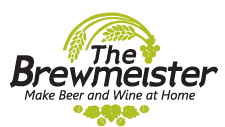If you are looking for amazing versatility from an ale yeast, look no further than Nottingham dry brewing yeast. Nottingham offers great performance with every batch, allowing brewers to cover a wide variety of beer styles with just one yeast type.
The Nottingham strain was selected for its highly flocculant & relatively full attenuation properties. It produces low concentrations of fruity and estery aromas and has been described as neutral for ale yeast, allowing the full natural flavor of malt & hops to develop.
The recommended fermentation temperature range of this strain is 14° to 21°C (57° to 70°F) with good tolerance to low fermentation temperatures (12°C/54°F) that allow this strain to be used in lager-style beer. With a relatively high alcohol tolerance, Nottingham is a great choice for creation of higher-alcohol specialty beers!
Nottingham is available in 11 gram vacuum-sealed sachets and 500 gram vacuum-sealed packages. Bulk volumes are available for commercial use on request.
Microbiological Properties:
• Classified as Saccharomyces cerevisiae.
• A top fermenting yeast.
• The typical analysis of the active dried strain:
Percent solids 93%–95%
Living yeast cells 5 x 109 per gram of dry yeast
Wild yeast < 1 per 106 yeast cells (Lysine method)*
Bacteria < 1 per 106 yeast cells*
• Finished product is released to the market only after passing a rigorous series of tests.
*According to ASBC and EBC methods of analysis.
Brewing Properties:
• Quick start to fermentation, which can be completed in 4 days above 17°C.
• High attenuation, reaching a final gravity near 1008 (2°P).
• Fermentation rate, fermentation time and degree of attenuation is dependent on inoculation density, yeast handling, fermentation temperature and the nutritional quality of the wort.
• Shows flocculation at completion of fermentation, and settling is promoted by cooling and use of fining agents and isinglass.
• The aroma is slightly estery, almost neutral and does not display malodours when properly handled. Because of flocculation, it may tend to slightly reduce hop bitter levels.
• Best when used at traditional ale temperatures after rehydration in the recommended manner.
• Lager-style beer has been brewed with Nottingham, however low fermentation temperature requires adaptation of the pitching rate to ensure proper attenuation.

